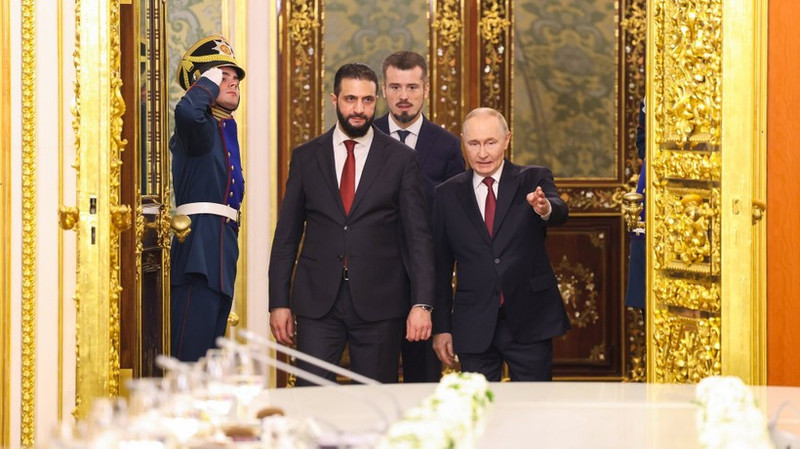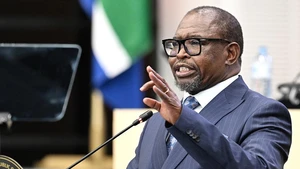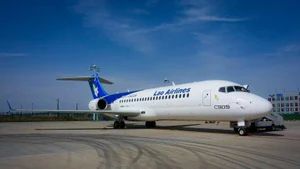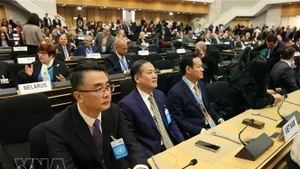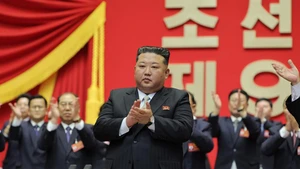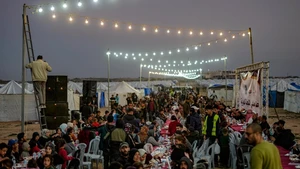The visit to Russia on October 15 by Syrian Interim President Ahmed Al-Sharaa attracted public attention, as this was the first visit to Russia by the head of the Middle Eastern country’s government since former Syrian President Bashar Al-Assad was overthrown in late 2024. Notably, Russia was a close ally of Syria under Al-Assad. Russia has also maintained a military presence in Syria through air and naval bases. Ahmed al-Sharaa’s choice of Russia as a stopover is said to reflect the two countries’ message of adapting to new realities and reshaping bilateral relations.
This visit brings many benefits to Syria, in the context that Syrian officials are trying to gain trust and support from the international community. This is an important factor for Damascus to attract more foreign investment and aid to rebuild the economy after 14 years of civil war. The visit to Russia partly reflects the image of moderateness, goodwill to cooperate, and the desire to rebuild the country of Syrian officials.
As an important partner of Syria in the previous period, Russia is considered to have a role in the arduous reconstruction journey of the Middle Eastern country. Therefore, in the meeting with Russian President Vladimir Putin at the Kremlin, Ahmed al-Sharaa has emphasised the efforts to restore and redefine the Russia-Syria relationship in the direction of Syria’s independence, sovereignty, territorial integrity, and security stability. As for Russia, proactively maintaining a dialogue and cooperation channel with the new government in Syria is considered an important step to help maintain influence and protect Moscow’s strategic interests in the Middle East.
This visit brings many benefits to Syria, in the context that Syrian officials are trying to gain trust and support from the international community. This is an important factor for Damascus to attract more foreign investment and aid to rebuild the economy after 14 years of civil war.
Promoting international cooperation is part of Damascus’ diplomatic strategy to strengthen the legitimacy of the transitional government, after major political upheavals in Syria. In recent times, the Syrian government has promoted negotiations with leaders of the US, European countries and the Gulf region, achieving significant results in easing sanctions, expanding relations with many countries in other regions, and marking achievements in international integration. Recently, Syria also held its first parliamentary elections since the overthrow of former President Al-Assad, marking an important political turning point in the post-war period.
However, along with opportunities come countless challenges. Syria will only truly be rebuilt when the government restores the trust of people of different ethnicities and effectively resolves conflicts and factional divisions. Years of war have increased divisions and conflicts, making national reconciliation and harmony difficult. The recent parliamentary elections were held in only 50 out of 60 constituencies across the country due to lack of security in the areas of Sweida, Raqqa, Hasakah, etc.
The peace process in the Middle Eastern country has become more complicated when witnessing the calculations of interests and the struggle for influence of external forces. Israel's airstrikes on Syria related to the confrontation between factions in Syria’s southern province of Sweida have partly revealed the complexity of the regional geopolitical chessboard.
The state of security instability, ethnic division, and the domination of the regional situation are major challenges for the government, which is struggling to rebuild Syria from the ashes of war. Moves towards political stability, economic recovery and national integration are still being promoted, but with existing security risks, the journey to rebuild Syria needs a comprehensive commitment of support from the international community.
